
Why Every Australian Needs a Moisture Meter
A Guide for Homeowners and Tradespeople
Moisture control is an essential part of maintaining the longevity of your property, tools, and equipment. Whether you’re a homeowner, a tradesperson, or someone managing a warehouse, understanding and managing moisture levels can make a significant difference in the durability of your investments.
Enter the moisture meter—a simple yet invaluable tool for assessing moisture levels in a variety of materials.
What is a Moisture Meter?
A moisture meter is a handheld device designed to measure the moisture content in materials like wood, concrete, plaster, drywall, and even soil. By using sensors or pins, it calculates how much water is present in the material and displays it as a percentage. There are two main types of moisture meters:
Pin Moisture Meters: These use two metal pins that are inserted into the material. The meter measures the electrical resistance between the pins, which correlates to the moisture content.
Pinless Moisture Meters: These use electromagnetic sensors to detect moisture content without the need to penetrate the material. This makes them ideal for quick, non-invasive readings.
Why is a Moisture Meter Essential for Australians?
Australia is known for its extreme weather conditions, from scorching summer heat to intense wet seasons in certain regions. Such drastic changes in weather patterns make moisture an ongoing concern for homeowners, builders, and tradespeople. Here’s why having a moisture meter at your disposal can be a game-changer:
1. Protecting Your Property from Moisture Damage
Excess moisture in your home or workspace can lead to a range of issues, from mold growth to wood rot, structural damage, and weakened foundations. It is crucial to be able to measure moisture levels in walls, ceilings, and floors to prevent long-term damage. A moisture meter can quickly detect hidden moisture, even before it becomes visible.
Regularly checking moisture levels helps identify problem areas early, allowing for timely intervention and repairs. This proactive approach can save you thousands of dollars in future repair costs.
2. Preventing Mold Growth
Mold thrives in damp, poorly ventilated areas such as walls, ceilings, bathrooms and kitchens. Excessive moisture in these areas can trigger mold growth, leading to potential health risks like respiratory issues and allergies. A moisture meter helps monitor moisture levels, enabling you to take action before mold becomes a problem.
3. Ensuring Quality of Building Materials
For builders and contractors, having an accurate moisture reading is critical for ensuring the quality of materials used in construction projects. Timber, for example, is prone to warping, shrinking, or cracking when exposed to fluctuating moisture levels. By using a moisture meter, you can ensure that materials like wood, drywall, and concrete are within acceptable moisture levels before installation. This not only ensures a higher-quality finish but also reduces the risk of costly rework or repairs later on.
4. Preventing Damage to Tools and Equipment
Moisture isn’t just a concern for your property—it can also impact your tools and equipment. The interior of tools such as drills, saws, and other machinery can corrode or short-circuit if exposed to excessive moisture over time. For those in the trades or warehouse industry, investing in a moisture meter allows you to measure humidity levels in storage spaces, ensuring tools and equipment are stored in optimal conditions to prolong their life and maintain their effectiveness.
5. Soil Moisture Management for Gardening and Agriculture
Australia’s dry conditions make water conservation an essential practice for gardeners and farmers. A moisture meter can help you monitor soil moisture levels, ensuring your plants receive the right amount of water. Whether you’re growing native plants, vegetables, or maintaining a lawn, a moisture meter can guide you on when to water, saving you money on water bills while keeping your garden healthy.
6. Insurance Benefits
If you’re dealing with water damage, your insurance company might require a moisture meter reading as part of the claim process. By having a moisture meter, you can document and demonstrate the moisture levels in affected areas, helping to expedite the claims process. Plus, having this tool on hand might help you catch potential issues before they result in significant damage, reducing the likelihood of needing to file claims in the first place.
Choosing the Right Moisture Meter for Your Needs
Selecting the right moisture meter depends on your specific needs. Here’s what to consider when choosing a moisture meter for your home or business:
Accuracy: Look for a moisture meter with a high level of accuracy and precision. High-end models can provide readings down to the nearest percentage point.
Versatility: Some moisture meters are designed for use on specific materials, while others are more versatile. If you need to check a variety of surfaces (wood, concrete, drywall, etc.), look for a model that can handle multiple materials.
Ease of Use: Opt for a model that is easy to use and gives clear readings. For a tradesperson or homeowner, a user-friendly model will make routine checks quicker and more efficient.
Size and Portability: A compact, lightweight model is ideal for ease of handling and portability, especially for tradespeople on the go.
Conclusion
Whether you’re safeguarding your home from water damage, ensuring the quality of construction materials, or simply keeping your tools and equipment in top condition, a moisture meter is an indispensable tool for every Australian. With the ability to prevent mold, protect your investments, and help you maintain optimal conditions for gardening and agriculture, the benefits of owning a moisture meter are clear.
At Duke Warehouse, we offer a wide range of moisture meters designed to meet the needs of homeowners, tradespeople, and businesses alike.
Browse our selection and invest in a moisture meter today to ensure your property and tools stay in top shape for years to come.
Moisture Meters
HVAC Tools & Equipment
Disclaimer: The information provided in this blog post is for general informational purposes only. Duke Warehouse makes no representations or warranties regarding the accuracy, completeness, or applicability of the content provided. The use of a moisture meter, or any related tools or methods discussed, is at the user’s own risk. While we strive to provide helpful and accurate information, Duke Warehouse is not liable for any direct, indirect, incidental, special, or consequential damages arising from the use of the information provided or the use of moisture meters and other tools purchased from our store. It is the responsibility of the user to ensure that any products purchased are suitable for their intended purpose. Duke Warehouse does not accept responsibility for any damages, loss, or injury resulting from improper use of the information or products provided.

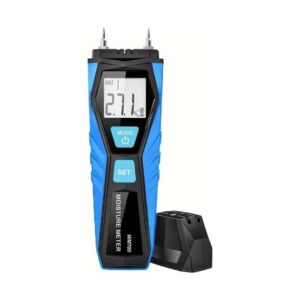
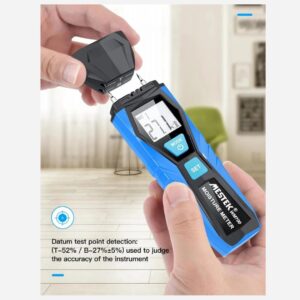
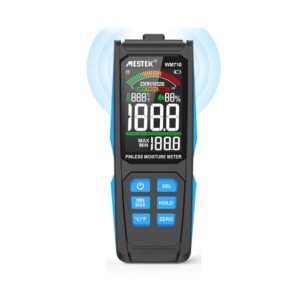
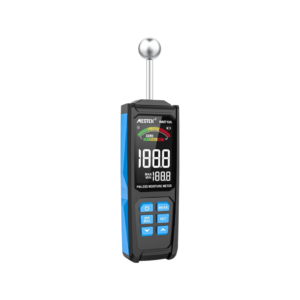

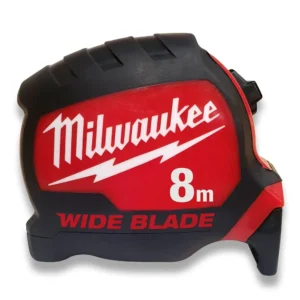 Milwaukee Wide Blade 8 Meter Tape Measure
Milwaukee Wide Blade 8 Meter Tape Measure